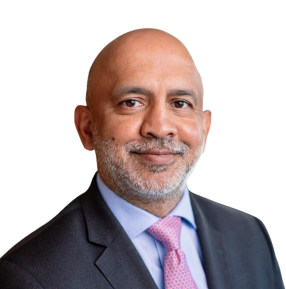Diagnostics, Administrative Intelligence, and Patient-Centric Design
The integration of AI in healthcare is accelerating rapidly. By 2030, some analysts project that the global market for healthcare AI could exceed $180 billion, with millions of professionals either working alongside or being supported by generative agents and machine learning systems. These modular AI agents are playing active roles in diagnostic imaging, back-office administration, clinical decision support, and virtual care coordination. As legacy systems are replaced by flexible, data-driven platforms, new use cases are emerging, including virtual triage assistants, predictive scheduling systems, care pathway designers, and AI-powered patient companions.
AI is not just augmenting healthcare; it is reshaping it at every level.
Organizations around the world are investing significantly in healthcare AI infrastructure, with the United States leading in the deployment of cloud-native clinical platforms and interoperable data solutions. AI-powered tools are now supporting radiologists by flagging early disease indicators, helping case managers organize multidisciplinary care plans, and reducing administrative friction through automated coding, billing, and clinical documentation. The AI models that power these systems are now highly specialized. They are trained on curated and de-identified healthcare datasets and adapted to meet the specific needs of each institution.
A single modular agent, configured to manage scheduling, referrals, and compliance alerts, can improve throughput across small clinics or large hospital systems. These solutions are scalable and can be deployed in telehealth networks, urban hospitals, and rural health centers alike. Technology providers are no longer just vendors; they are strategic partners, delivering embedded intelligence while maintaining strict data governance and patient privacy standards. Around the world, health systems are both contributors to and beneficiaries of this AI-driven transformation.
Trust and Transparency are Essential
The expansion of AI in healthcare requires ethical oversight, strong security protocols, and transparent validation. Although algorithmic models are more accurate, clinical safety depends on explainable outputs, regular audits, and clinician-in-the-loop processes. Regulatory frameworks are evolving quickly, requiring vendors and providers to align on safety standards, efficacy benchmarks, and real-world performance metrics.
Just as importantly, patient trust must be earned. Generative AI systems in healthcare should prioritize empathy, cultural sensitivity, and equity. Health AI Summit 2026 will highlight these critical aspects of AI deployment by hosting discussions on bias mitigation, transparency, and the future of AI-informed care.
At Health AI Summit 2026, companies will showcase their breakthroughs in AI-driven diagnostics, ambient clinical intelligence, digital therapeutics, and real-time care coordination. Innovations ranging from autonomous note-taking agents to generative models that synthesize patient histories into coherent longitudinal records will offer a blueprint for the connected and compassionate healthcare systems of the future.











































